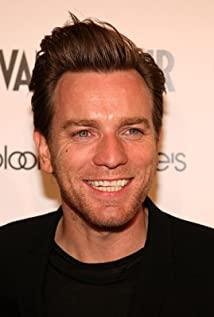It seems that "Star Wars fans" all over the world are accusing the postquel, just like another group of movie fans accusing the prequel 20 years ago. History is full of irony. George Lucas, who was once hung on the pole of shame by fans, has become a god again after time has passed. When idols are erected, and idols are overthrown, people repeat the same thing forever.
We are all looking for the grand occasion of 1977. We do not know that Star Wars has always been, and will always be, a "legend".
The reason why Star Wars can become a phenomenon is because of the accidental and inevitable success of 1977. If the success of 1977 can be replicated, Star Wars is not Star Wars. Because only ordinary commercial films can be copied, and everything Lucas did back then was the result of apostasy. Even he himself could not replicate 1977 for the rest of his life.
Nevertheless, it seems that everyone is now qualified to say something "like Star Wars" and what "not like Star Wars". But who can say how to do Star Wars? Who has the final say? George Lucas? Lucasfilm? New fan? Old fan?
I'm afraid, no one can say what Star Wars "should" do.
Because Star Wars has become a creation that is not completely controlled by master creation or capital. It is Frankenstein who transcends the Creator and forms a set of life system on its own.
Everyone thought that the one they saw was the real Star Wars. But while we understand the work, we are also shaping a new work. Later, as long as it does not conform to our perception, it will be regarded as an unconsistent fake.
This is fandom. A contradiction that is not controlled by anyone. It is also mixed with a small number of people who share the same party with each other, creating the concept of "following the wind", establishing chains of contempt and barriers, and hoping that their hobbies will never be "popularized."
What are we maintaining? What are we looking for in the postscript?
The problem is that Star Wars 1 to 6 is already a complete story, the product of Lucas's continuous improvement over decades. It is already difficult and difficult to continue writing at the end of the story without loose end. Except for the previous generations of novelists who wrote casually for no money, who would dare to make an unbelievable aftermath? There are indeed many derivative works left behind by Qingshi, but there are countless others who have died in obscurity. In the face of this failure rate, the main creators of the posters must look for inspiration from their old books, and dare not throw away their original creations. What if fans don’t recognize it? This is the double-edged sword of fandom. This is destined to be an epoch-making post-production. Star Wars has been tied to fandom.
Fans have endless reasons to criticize the posterity, because every fan is looking for something different in the posterity, perhaps the success in 1977, or 2005, or other memories that blend with their growth. But the memory that has been submerged in the long river of time cannot be copied and reborn.
Time also dilutes all memories of failure.
At the same time, Star Wars has grown savagely into a behemoth far beyond the size of the 1977 or 2005 era, and far beyond any power that capital can control. Movie fans are actually part of this creation, coexisting with it and evolving together. They have long been entangled with each other to become an increasingly indistinguishable mass.
As for the film itself, the pressure it faces is already uncontrollable and beyond the reach of everyone.
JJ has done his part.
View more about Star Wars: Episode IX - The Rise of Skywalker reviews











